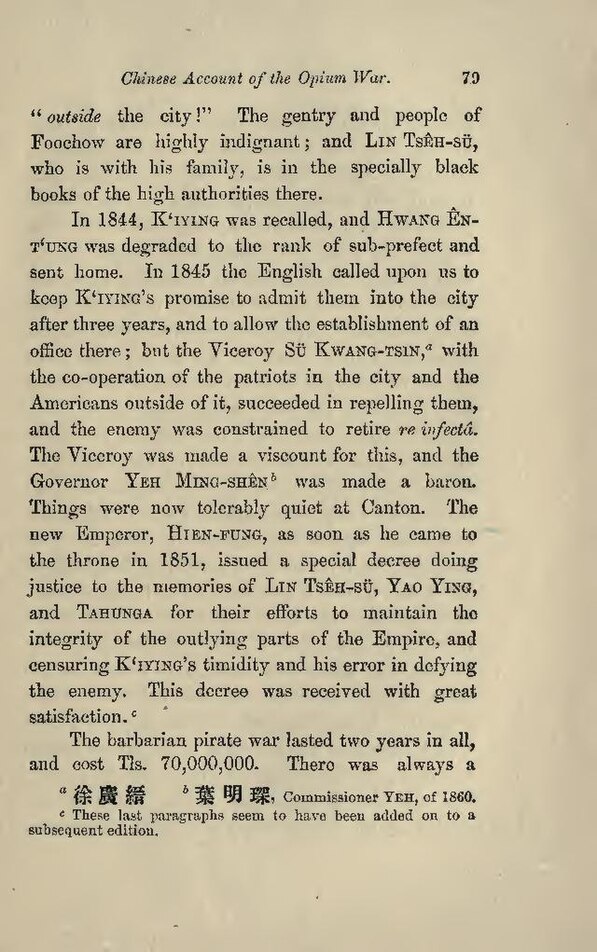outside the city!" The gentry and people of Foochow are highly indignant; and LIN TSÊH-SÜ, who is with his family, is in the specially black books of the high authorities there.
In 1844, K‘IYING was recalled, and HWANG ÊN- T‘UNG was degraded to the rank of sub-prefect and sent home. In 1845 the English called upon us to keep K‘IYING's promise to admit them into the city after three years, and to allow the establishment of an office there; but the Viceroy Sü KWANG-TSIN,[1] with the co-operation of the patriots in the city and the Americans outside of it, succeeded in repelling them, and the enemy was constrained to retire re infectâ. The Viceroy was made a viscount for this, and the Governor YEH MING-SHÊN[2] was made a baron. Things were now tolerably quiet at Canton. The new Emperor, HIEN-FUNG, as soon as he came to the throne in 1851, issued a special decree doing justice to the memories of LIN TSÊH-SÜ, YAO YING, and TAHUNGA for their efforts to maintain the integrity of the outlying parts of the Empire, and censuring K‘IYING's timidity and his error in defying the enemy. This decree was received with great satisfaction.[3]
The barbarian pirate war lasted two years in all,
and cost Tls. 70,000,000. There was always a
